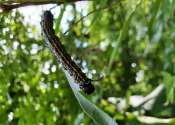Researchers confirm that neonicotinoid insecticides impair bee's brains
Research at the Universities of St Andrews and Dundee has confirmed that levels of neonicotinoid insecticides accepted to exist in agriculture cause both impairment of bumblebees' brain cells and subsequent poor performance ...









